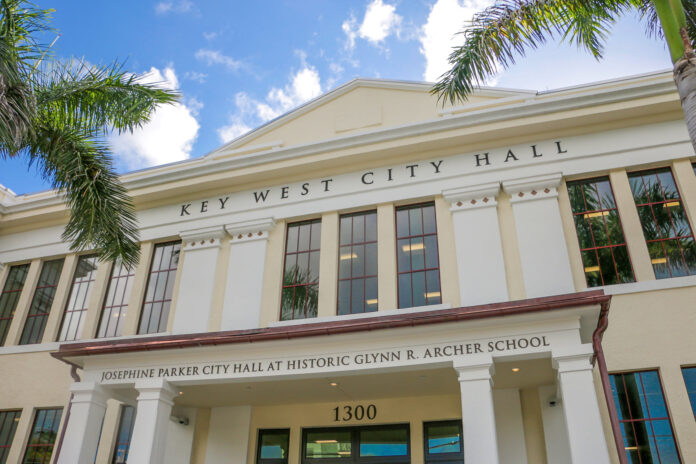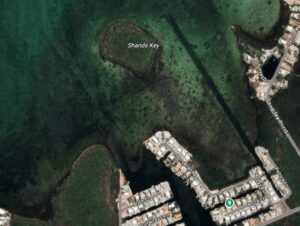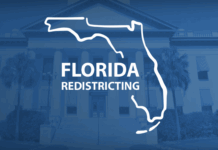Editor’s note: The following was submitted by George Edson in response to the city of Key West’s consideration of a November ballot question that will ask local voters whether the city should utilize $300 million of general obligation bonds, to be paid back over 30 years, for costly improvement projects.
Dear Editor:
General obligation municipal bonding is a well-accepted and responsible way to finance public projects. However, the way the Key West $300 million general obligation bond proposal is structured, it may be a really bad idea for a number of reasons:
- Normally a municipality would plan a project, like a fire station, and design it, engineer it, price it and then go out for a bond to pay for it. In this case the city is asking for a “pot of money,” “a line of credit,” “a blank check,” to spend over an unspecified number of years, for projects yet to be selected, at unknown interest rates. It’s just plain backwards.
- Some commissioners say, “It’s a democracy. Let the voters decide.” By “letting them decide,” on this one vote, they are removing their “right to decide” on the next $300 million of bonded capital projects. This is probably the single most important reason to vote against this issue. This proposal is just so anti-democratic. One supporter suggested that authorizing $300 million all at once would result in not having to go back to the taxpayers again! And this is a good thing?
- Let’s recognize that it is more like a $500 million bond than a $300 million bond. Full implementation would result in an additional interest cost of $215 million.
- Once the bond is fully drawn, the increased cost to every taxpayer, homesteaded or not, would be just under 10%. Homesteaded properties enjoy no special advantage.
- It appears $300 million is way too much. Based on past “pay as you go” capital spending, that amount for future bonded spending is excessive.
- Government financial policy best practices, as spelled out in the publication, “An Elected Official’s Guide to Debt Issuance,” call for the development of a written comprehensive debt policy. Key West has no such policy.
- Commissioner Jimmy Weekley rightly points out that some of the suggested projects may be eligible for revenue bonds while others may be eligible for TDC funding. Let’s take a deep breath, create a long-term financial debt plan and revisit a bonding plan next year.
- Another problem with the proposed bond question is the structuring of it though four different project lists. Is it wise to group things that might not all meet the same criteria? Some may be more time sensitive than others. Some may take way longer to design and implement than others.
- It is generally agreed that the Flagler/Kennedy fire station needs to be replaced. The “wish” of an addition to the police station is a more recent addition to the list. And yet the bond proposal includes $34 million for an addition to the police department. Adding that to the fire station request of $42 million makes a total of $76 million requested in just one bond resolution. The addition of the police wish, to the existing fire department need, may put the total cost into a category that may well kill the whole public safety bond proposal. It may be a deal killer.
- Maybe it would be best to treat the fire station as a stand-alone issue without the $300 million bond. Just design it and finance it through grants, federal funds, state funds, ½-cent sales tax, and then finance the remaining balance though its own general obligation bond. That could have as little as less than 1% impact on the tax rate.
- Should consideration of the bond issue be put off for a year so that more time can be spent to study the entire question, and maybe most of all, to let the next commission have a larger role in determining the future financial direction of the city? Four out of seven commission members will not be in office in a few short months.
- We all want smooth streets. But is it wise to bond paving, at a cost of $40 million, to pave 13 miles of streets, leave 48 miles unpaved, and then have to repave those same streets before the bond is paid for, so that we are repaving streets whose paving hasn’t been paid for yet?
- Instead of bonding the paving projects, which might be a really bad idea, raise a dedicated tax for paving. The good thing is that the issue could be revisited every year. There would be no 30-year commitment, and no interest.
- There are maintenance and upgrade expenses in the bond. It is very unusual to bond upgrades and maintenance work at all, and certainly not for 30 years. Many items on the bond have a useful life of less than 30 years. Bond buildings, not sun shades and sprinklers.
- Maybe this whole $500 million bonding issue is a pie in the sky, feel good way to finance Key West, but not the most prudent or responsible way. The bond proposal may be a really, really bad idea.
Sincerely,
George Edson
Key West


























